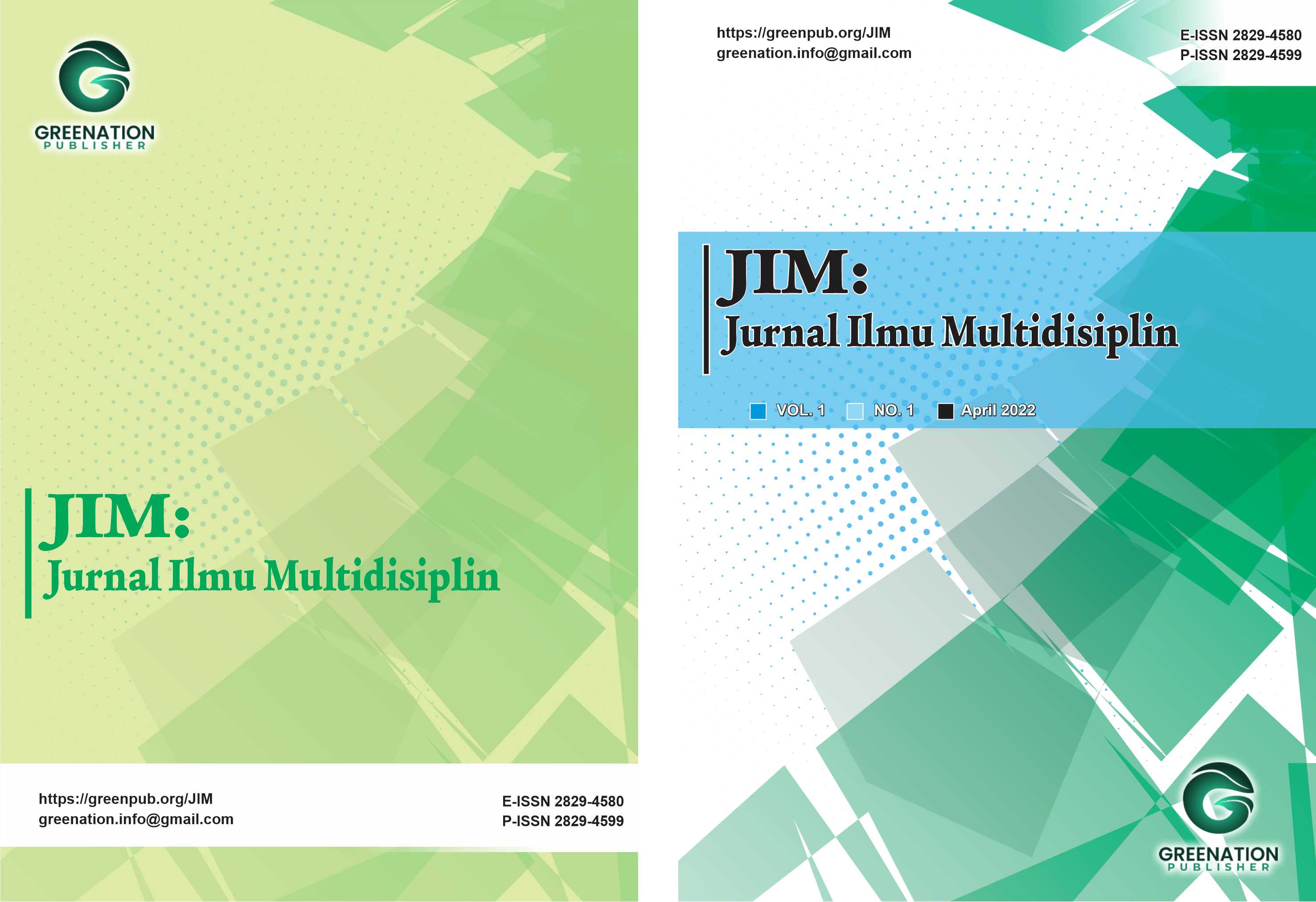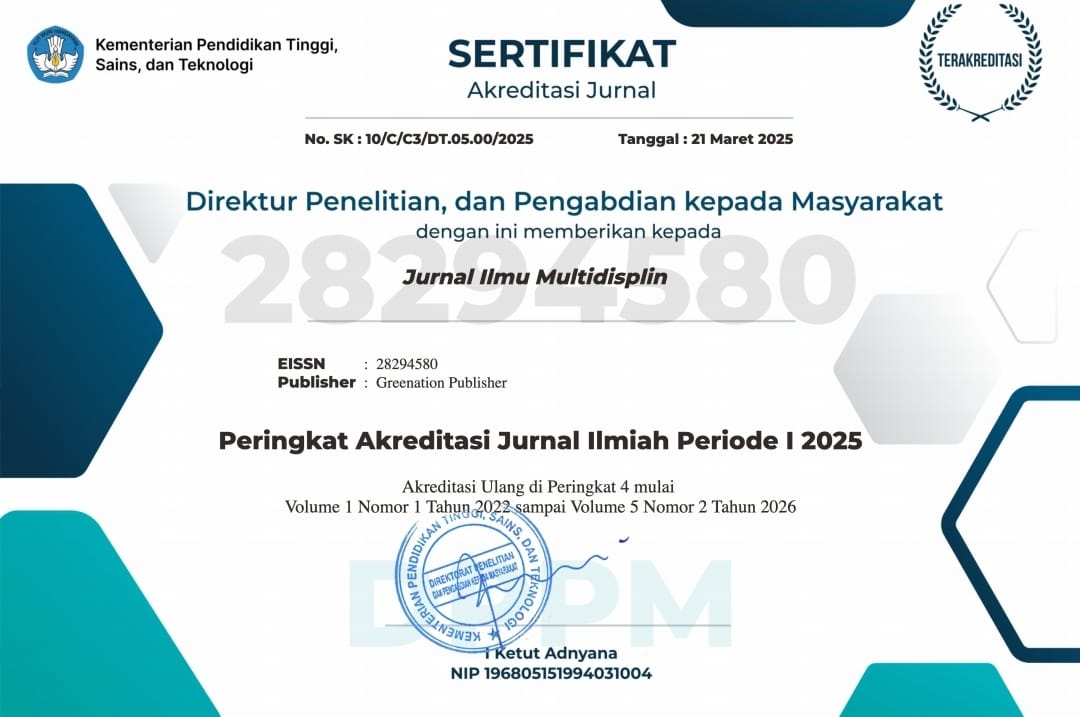Bridging Faith and Innovation: A Review of Social Innovation and Social Value Creation in Faith-Based Philanthropy Organizations
DOI:
https://doi.org/10.38035/jim.v4i4.1417Keywords:
Faith-Based Philanthropy Organizations, Social Innovation, Social Value Creation, Religious Capital, Hybrid OrganizationsAbstract
This review addresses the challenge Faith-Based Philanthropy Organizations (FBPOs) face in integrating social innovation while demonstrating social value. These organizations must balance their unique religious identity with increasing secular demands for measurable impact. This study's objectives are to map how FBPOs implement social innovation, identify the mechanisms linking faith identity to value creation, and propose an integrated conceptual model. A scoping review methodology was employed, utilizing database searches (including Scopus and Web of Science) followed by a qualitative thematic synthesis. The results indicate that FBPOs engage in all four typologies of social innovation (product, process, position, paradigm), distinctly leveraging "religious capital" (trust, volunteer networks, religious funds) as a key input. This process generates multi-dimensional value, including material and crucial non-material (spiritual/communal) outcomes. The findings conclude that FBPOs operate as hybrid organizations managing competing logics, and a conceptual "Faith-Innovation-Value" (F-I-V) model is proposed, highlighting a critical gap in the measurement of non-material value.
References
Acuti, D., Bellucci, M., & Manetti, G. (2022). Digital transformation and nonprofit organizations: A systematic literature review on the role of digital technologies for achieving a social mission. Journal of Business Research, 145, 639-652.
Arksey, H., & O'Malley, L. (2005). Scoping studies: towards a methodological framework. International Journal of Social Research Methodology, 8(1), 19-32. https://doi.org/10.1080/1364557032000119616
Asutay, M., & Yilmaz, A. F. (2018). Revitalising the waqf system: The role of social finance and innovative partnerships. In Revitalising the Islamic Waqf for Socio-Economic Development (pp. 119-136). Palgrave Macmillan.
Avelino, F., Wittmayer, J. M., Pel, B., Weaver, P., Dumitru, A., Haxeltine, A., ... & O'Riordan, T. (2019). Transformative social innovation and (dis)empowerment. Technological Forecasting and Social Change, 145, 195-206. https://doi.org/10.1016/j.techfore.2017.05.002
Braun, V., & Clarke, V. (2021). Thematic Analysis: A Practical Guide. Sage Publications.
Buser, J. M. (2021). Innovation and faith-based organizations: Defining and measuring spiritual outcomes. Journal of Social Service Research, 47(2), 169-182.
Chen, K., & Suncha, C. (2023). Accountability demands and strategic responses in religious charitable organizations: A multi-arena perspective. Nonprofit and Voluntary Sector Quarterly, 52(4), 845-867.
Domaradzka, A. (2018). The transformative potential of faith-based organizations: The case of the Catholic Church in Poland. Third Sector Quarterly (Kwartalnik Trzeci Sektor), 42(2), 59-78.
Ghandour, Z. A., & Al-Jayyousi, O. (2022). The role of interfaith partnerships in achieving sustainable development goals: A case study from Jordan. International Journal of Sustainable Development and Planning, 17(4), 1261-1269.
Hervieux, C., & Voltan, A. (2018). Framing social problems in social entrepreneurship. Journal of Business Ethics, 151(2), 279-293. https://doi.org/10.1007/s10551-016-3252-1
Huda, M., Al-Faruqi, U., & As-Salaf, I. (2020). The use of big data and data mining in optimizing zakat distribution for social innovation. Journal of Islamic Monetary Economics and Finance, 6(2), 347-368.
James, K. D. (2018). Faith-based social entrepreneurship: The integration of faith and business for sustainable social impact. (Doctoral dissertation, Southeastern University). ProQuest Dissertations Publishing.
Kayadibi, S., Noor, Z. M., & Lahsasna, A. (2022). The role of fintech in revolutionizing zakat and waqf management: A systematic literature review. ISRA International Journal of Islamic Finance, 14(2), 208-226.
Kovach, K. A., & Cnaan, R. A. (2021). The ‘faith-based advantage’: Conceptualizing the added value of faith-based organizations. Administration in Social Work, 45(1), 3-18. https://doi.org/10.1080/03643107.2020.1802188
LeRoux, K., & Wright, N. S. (2020). Faith-based human service organizations: Navigating the administrative state and the expression of faith. Administration & Society, 52(1), 133-161.
McLoughlin, S., & Thomas, A. (2019). Thinking about faith-based organisations in development: Where have we got to and what next? In International Development and Faith: A Critical Review. Routledge.
Menkhaus, K. (2021). Faith-based actors and humanitarian innovation in conflict zones. Third World Quarterly, 42(5), 887-905.
Meynhardt, T., & Brieger, S. A. (2021). Public value and social innovation: A new framework for non-profit organizations. Voluntas: International Journal of Voluntary and Nonprofit Organizations, 32(4), 707-719.
Page, M. J., McKenzie, J. E., Bossuyt, P. M., Boutron, I., Hoffmann, T. C., Mulrow, C. D., ... & Moher, D. (2021). The PRISMA 2020 statement: an updated guideline for reporting systematic reviews. BMJ, 372, n71. https://doi.org/10.1136/bmj.n71
Pallas, C. L., & Wilkinson, A. (2020). Defining the faith-based organization. In Faith-Based Organizations in Development. Routledge.
Peters, M. D. J., Marnie, C., Tricco, A. C., Pollock, D., Munn, Z., Alexander, L., ... & Khalil, H. (2020). Updated methodological guidance for the conduct of scoping reviews. JBI Evidence Synthesis, 18(10), 2119-2126. https://doi.org/10.11124/JBIES-20-00167
Pyles, L. (2018). Faith-based organizations, community participation, and disaster recovery: A case study of 'New Waveland'. Journal of Community Practice, 26(1), 60-77.
Shafii, Z., Rosly, H. E., & Tahir, I. M. (2021). Regulatory challenges and policy recommendations for Islamic social finance instruments (Zakat, Waqf, and Sadaqah) in Malaysia. Journal of Islamic Accounting and Business Research, 12(5), 682-700.
Smith, C., & Thorlindsson, T. (2018). Institutional logics and the mission of faith-based organizations: A comparative study. Sociology of Religion, 79(1), 51-78.
Tomlinson, M., Rotheram-Borus, M. J., & Swendeman, D. (2022). Innovations in measuring client-reported outcomes in global health and development. Global Health Action, 15(1), 2038104.
Tricco, A. C., Lillie, E., Zarin, W., O'Brien, K. K., Colquhoun, H., Levac, D., ... & Hempel, S. (2018). PRISMA extension for Scoping Reviews (PRISMA-ScR): Checklist and explanation. Annals of Internal Medicine, 169(7), 467-473. https://doi.org/10.7326/M18-0850
Ware, A., Pallas, C. L., & Wilkinson, A. (2020). Navigating competing logics: Faith-based organizations in the international development sector. Voluntas: International Journal of Voluntary and Nonprofit Organizations, 31(4), 743-755. https://doi.org/10.1007/s11266-019-00135-z
Downloads
Published
How to Cite
Issue
Section
License
Copyright (c) 2025 Dinar Apriyanto, FENDY SUHARIADI, Muhammad Miftahussurur

This work is licensed under a Creative Commons Attribution 4.0 International License.
You are free to:
- Share— copy and redistribute the material in any medium or format
- Adapt— remix, transform, and build upon the material for any purpose, even commercially.
The licensor cannot revoke these freedoms as long as you follow the license terms.
Under the following terms:
- Attribution— You must give appropriate credit, provide a link to the license, and indicate if changes were made. You may do so in any reasonable manner, but not in any way that suggests the licensor endorses you or your use.
- No additional restrictions— You may not apply legal terms or technological measures that legally restrict others from doing anything the license permits.
Notices:
- You do not have to comply with the license for elements of the material in the public domain or where your use is permitted by an applicable exception or limitation.
- No warranties are given. The license may not give you all of the permissions necessary for your intended use. For example, other rights such as publicity, privacy, or moral rightsmay limit how you use the material.



























